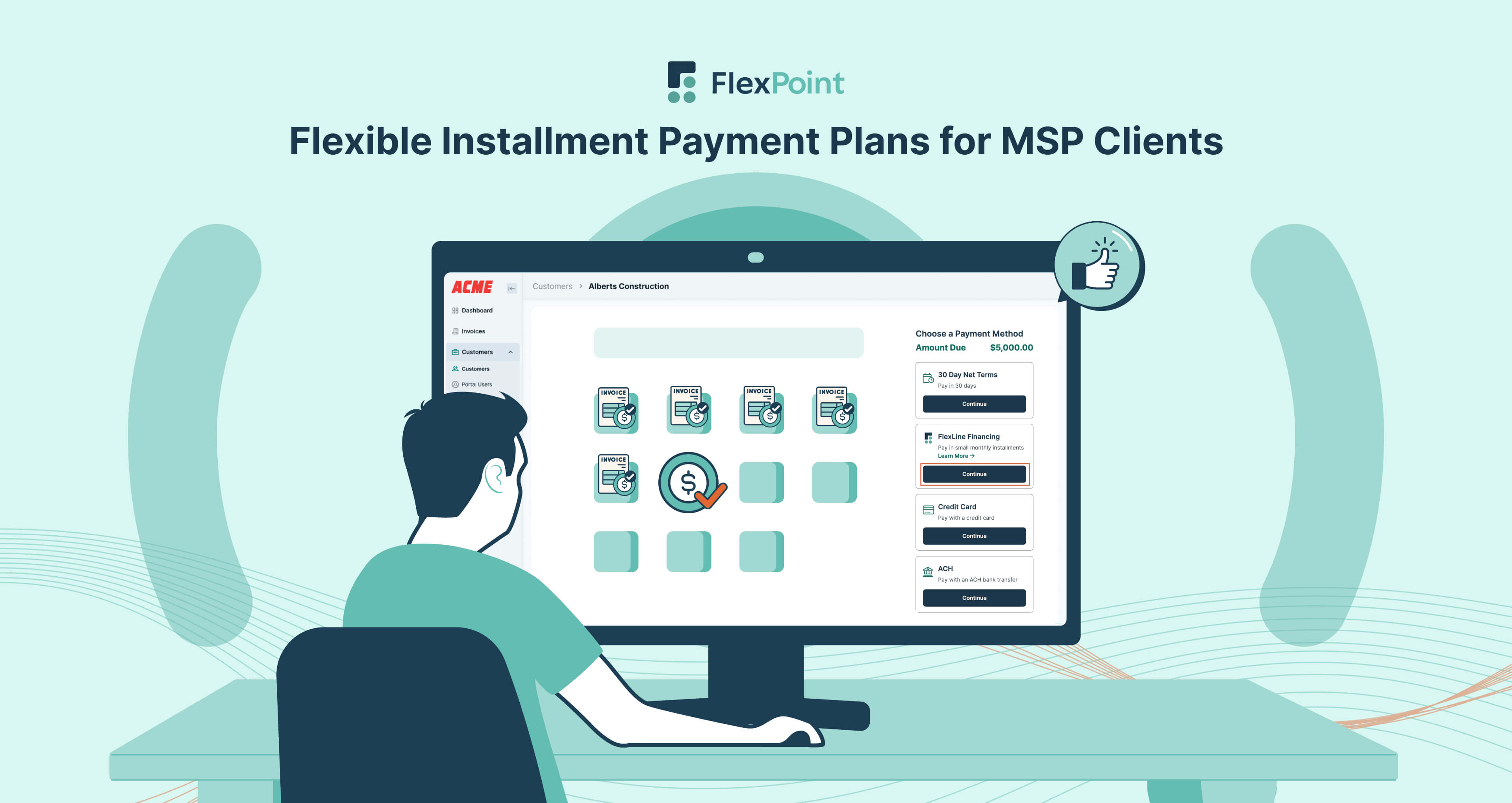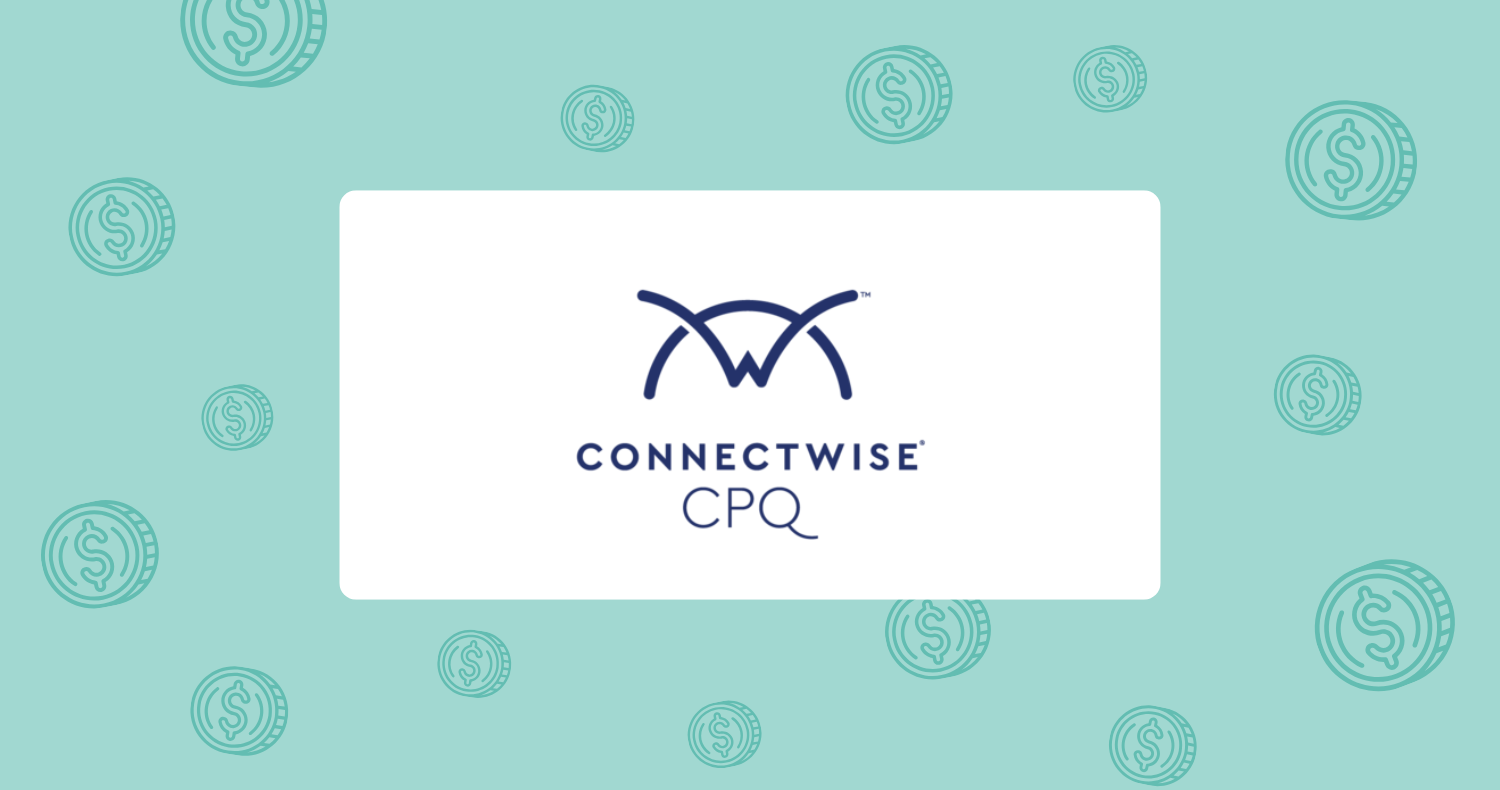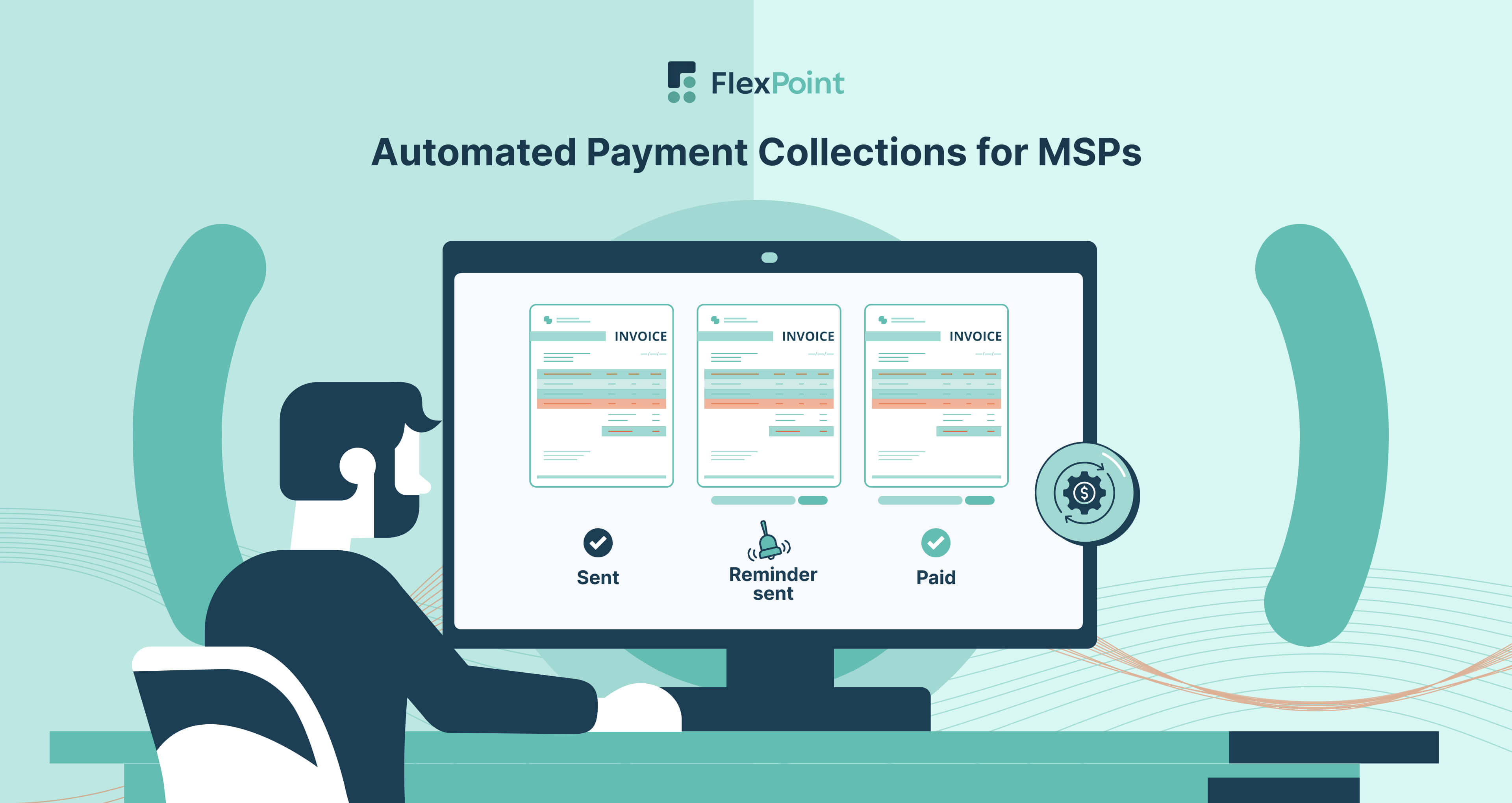Streamlining MSP Payment Times: Strategies to Enhance Client Communication and Satisfaction

According to MSP Insights, MSP payment cycles are 60 days or longer. Lengthy payment cycles lead to cash flow issues for MSPs and hinder business growth. Efficient payment processes are necessary to improve payment times and streamline billing operations.
Swift payments prevent financial strain and allow MSPs to invest in growth opportunities. Timely billing and payment reminders position your MSP as a reliable partner and improve client relationships.
This article will explore the common challenges MSPs face with payment delays and help you optimize payment processes. We will also discuss effective communication strategies to encourage timely payments.
{{toc}}
11 Key Issues Impacting MSP Payment Timelines
According to Atradius, 55% of all B2B invoices are overdue, and companies face cash flow issues and liquidity shortfalls.
MSPs that rely on manual billing practices face payment issues due to errors and omissions. Follow-ups and corrections needed in these invoices delay the payment cycle and result in cash flow issues.
Client misunderstandings also lead to a backlog of unpaid invoices. They may not be clear about the payment due date, accepted payment methods, or consequences of late payments.
If MSPs do not communicate payment policies clearly, clients also deprioritize timely payments.
Inefficient MSP payment management systems also create payment delays. Without robust tracking of invoices, payments, and outstanding balances, your financial teams may struggle to identify overdue payments and remind clients to pay.
Here are some critical reasons for delays in MSP payments:
1. Unclear Communication
MSPs that do not regularly and clearly communicate with clients about billing and payments experience payment delays.
Consistent billing communications ensure that clients fully understand the payment terms, due dates, accepted payment methods, and penalties for late payments.
According to Deloitte, 48% of B2B customers struggle to find accurate pricing information. They may delay payments due to incorrect or unclear invoicing information.
MSPs must implement standardized billing communication practices, such as sending invoices by scheduled dates and reminders before the last date to pay.
Clear and transparent communication reduces the chances of payment delays and builds customer trust.
2. Inconsistent Billing Practices
MSPs with manual billing practices find adhering to a regular billing schedule difficult. Their clients may be unaware of when to expect invoices and payment due dates.
The oversight leads to missed payments, and clients may even allocate the funds to other expenses.
According to PYMTS, firms that follow up on outstanding payments after 45 days have 26% overdue receivables compared to only 8.8% for those that follow up within five days.
Irregularity in billing and follow-up prolongs the payment process and reduces administrative burdens.
3. Manual Processing Delays
Manual payment management is slow and costly.
According to PYMNTS, companies with manual payment processes spend 67% more time following up on overdue payments.
The average Days Sales Outstanding (DSO) is also 30% longer for companies with manual accounts receivable (AR). Manual methods are more likely to cause errors and oversight, and the slower transaction times impact the efficiency of MSP operations.
Moreover, manual processes involve multiple steps, such as data entry, approval workflows, physical mailing or emailing of invoices, and processing checks. These quickly add up to the payment management costs.
According to Adobe, invoice processing costs $15 and $40 per invoice. The manual effort in follow-ups and invoice corrections consumes time and resources, contributing to further delays and overheads.
4. Client Misunderstandings
Miscommunications regarding payment terms or invoice details complicate and extend the payment cycle.
According to PYMNTS, 40% of companies say checking invoices is difficult, resulting in late payments.
If MSPs do not handle invoicing properly, clients may misinterpret payment deadlines or terms.
According to Versapay, 80% of companies say miscommunication in the invoice-to-cash cycle results in revenue loss.
Clients who frequently face billing misunderstandings become frustrated and lose trust in the MSP. These poor payment experiences even lead to customer loss.
5. Technical Issues with Payment Systems
Outdated or malfunctioning MSP payment systems delay payment processing.
According to Zanskar, 54% of failed payments stem from payment systems that do not automatically verify cards, while 45% fail because the system allows payments through expired cards.
If clients face errors in the payment process, they may delay or avoid payments altogether.
Technical issues such as long loading time or system crashes delay invoice delivery and payment processing.
According to Flywire, 76% of companies face revenue losses due to time spent on managing accounts receivables.
Payment systems that lack modern functionalities, such as automated invoicing, reminders, and real-time tracking, are time-intensive and impact cash flow.
6. Regulatory Compliance
According to MSP Success, 72% of MSP clients are not PCI compliant.
Clients expect their MSPs to handle PCI compliance to avoid hefty non-compliance fees, which can reach $500,000 per violation.
Ensuring compliance with PCI-DSS standards is crucial for protecting payment data and maintaining trust.
Clients rely on MSPs to stay updated with evolving compliance standards.
Non-compliance can result in penalties, reputational damage, and legal disputes. Clients discovering compliance failures may delay payments and seek alternative providers, leading to higher customer churn and lost revenue.
Managing PCI compliance effectively is essential for retaining client trust and ensuring business stability.
7. Inefficient Payment Gateways
According to the PYMNTS, 48% of businesses say outdated software leads to payment failures.
Inefficient payment gateways often result in slow transactions, delay payment processing, and frustrate clients.
According to Flywire, 27% of companies lose 6-10% of monthly revenue to inefficient payment processing. This disrupts MSPs' cash flow and increases administrative work for your team.
8. Lack of Automation
Manual processes lead to inaccuracies and delays in invoicing and payment follow-ups. It does not provide real-time visibility of the payment status or the accurate outstanding amount. Such issues lead to disputes with clients and delay payments.
According to SKsoft, 64% of companies agree that lack of automation is a challenge when making supplier payments. 16% say their payments are consistently late due to slow manual processes.
Lack of automation requires your teams to raise invoices manually, send reminders, reconcile payments, and follow up on overdue payments. All of this takes up valuable time and resources.
9. Discrepancies in Invoicing
Invoice errors, such as incorrect amounts or mislabeled services, lead to significant delays. Such mistakes necessitate additional checks and verifications, consuming valuable time for your team and the client. They prolong the payment cycle and impact the client’s perception of your MSP.
According to IFP, the following six types of invoice discrepancies:
- Factual errors
- Mismatch in deliverables
- Pricing issues
- Timesheet discrepancies
- Payment constraints
- Duplicate invoicing
Fixing these discrepancies requires additional manual effort and communication to clarify the differences.
10. Client Financial Constraints
Clients usually intend to maintain prompt payments; however, due to limited cash reserves, they may postpone them. This can create a situation where MSPs must bear operational costs before receiving client payments.
Payment delays disrupt the financial planning and operational stability of MSPs, resulting in strained client-provider relationships.
MSPs can maintain their monthly recurring revenue (MRR) with autopay.
Autopay automates client invoicing on a set schedule, ensuring timely receipts and reducing dependency on client cash flow. This improves financial stability and less administrative burden, helping MSPs focus on growth rather than payment collection.
11. Cross-Border Payment Challenges
MSPs with clients in multiple countries face additional payment complications and delays due to different banking regulations and currency exchange rates.
According to Flywire, 95% of companies struggle with exchange rates, and 88% say time spent collecting cross-border payments hampers their growth.
Cross-border transactions are subject to currency conversion rates, bank fees, and international transfer charges, which increase the pricing of your offer.
According to Wise, payment methods like international wire transfers take 1 to 5 business days to settle. This affects MSPs' cash flow and delays financial obligations.
{{ebook-cta}}
10 Effective Strategies to Accelerate Payment Processes in MSPs
MSPs can address their numerous payment processing challenges by adopting technology and effective communication.
You can streamline payment processes with automated invoicing systems, payment gateways with real-time transaction tracking, and flexible payment options.
Clear and concise billing with timely communication of previous outstanding reduces barriers to prompt payments.
MSPs can use detailed invoices that outline services rendered, payment terms, and instructions to avoid invoice miscommunication.
Visual aids, such as summary charts and timelines, provide clients with clarity on the overdue and upcoming payments.
Here are some effective strategies to accelerate MSP payments:
1. Automated Invoicing Systems
Using automated invoicing systems eliminates manual intervention in the invoice generation, delivery, and follow-up processes. It allows MSPs to create invoices in batches on specified dates with predefined templates.
You must choose systems that integrate with other MSP-specific tools like ConnectWise, SuperOps, to eliminate manual data entry.
In addition, robust payment software must be integrated with your accounting software, such as Xero, QuickBooks Online or QuickBooks Desktop.
For instance, by automating their billing process, Compunet Technologies, a California-based MSP, reduced their billing time from 5 hours to just 15 minutes per month.
FlexPoint’s Autopay option made their billing cycles four times faster.
MSPs gain greater visibility into their payments with automated invoicing systems. You can track invoices sent, payments received, and pending payments in real time. The system automatically sends payment reminders for overdue payments and offers flexible payment options based on your client’s preferences.
2. Clear Communication of Payment Terms
MSPs must communicate payment terms and ensure clients agree to them before delivering services.
To prevent payment disputes, you must sign a mutual agreement with the client that clearly outlines the deliverables, expectations regarding payment amounts, due dates, and acceptable payment methods.
Net-Tech, a Texas-based MSP, onboarded their clients to the FlexPoint payment automation platform to receive payments 20 days faster.
Their clients now make payments on time with payment options like AutoPay, one-click payments, and ACH.
Eliminating misunderstandings will reduce the chance of delayed payments. MSPs can communicate with clients through branded portals to address payment-related queries and improve client relations.
3. Efficient Payment Gateways
Using modern and efficient payment gateways helps MSPs get paid quickly. They streamline the invoice-to-payment workflow, ensuring transactions are processed swiftly and accurately.
You can provide a branded client portal with efficient payment gateways so that clients can pay easily through a passwordless payment system.
IT Vortex, a New Jersey-based MSP, started receiving payments up to 30 times faster with FlexPoint’s AutoPay feature on a secure client-specific payment portal. They also saved 60 hours per year and $15,000+ per month spent on manual invoicing.
MSPs using efficient payment portals save time and money as you do not need to juggle client invoices over emails, send clients payment links, and manually reconcile receivables. It also reduces hidden credit card processing fees and also improves client trust in you.
4. Regular Follow-Ups
Regular follow-ups serve as gentle reminders for payments and reduce the incidence of late payments.
According to PYMNTS, firms that rely on manual collection spend 30% more time on follow-ups than those using automated methods.
You must use an automated payment reminder system to send timely payment updates to your clients.

tekRESCUE, a Texas-based MSP, improved its accounting efficiency by 75% by replacing manual payment collection methods with FlexPoint’s payment management platform.
MSPs must communicate consistently with clients to address any uncertainties or issues. You must follow up proactively to ensure clients adhere to the agreed payment terms.
5. Client Education Programs
Offer educational sessions or reference materials to clients regarding the payment process. This will reduce misunderstandings and provide a smoother payment experience.
According to the US Chamber of Commerce, including detailed payment instructions on invoices improves payment times for 70% of businesses.
MSPs can educate clients on the various payment methods available. You can also share comprehensive guides to help clients navigate the automated payment portal. Clear communication builds customer trust and ensures timely payments.
6. Streamlined Billing Software
Using integrated billing software that connects with other business systems helps streamline and speed up operations. It allows data to flow across different functions like CRM, ERP, or MSP tools like Connectwise and.
Integrated billing software eliminates redundant data entries and reduces time spent fixing errors. As payment collection data is automatically updated, MSPs can accelerate service delivery.
According to Flywire, 89% of finance professionals save costs by integrating cross-border payment solutions with their ERP systems.
If you are an MSP dealing with clients in multiple countries, integrating your payment software with your other tools helps improve cash flow management and saves overhead costs.

7. Digital Payment Options
Encouraging digital and online payment methods helps MSPs collect payments faster than traditional methods like paper checks.
Traditional methods involve time-consuming steps, such as mailing checks, which take time to deliver and can get lost in transit. Additional time and resources are spent on bank processing. In contrast, digital payments are faster and safer.
Excellent Networks, a Texas-based MSP, upgraded to FlexPoint’s payment portal to offer digital payment methods to clients. Their invoice turnaround time has decreased from 25 days to five, and they receive payments 80% faster than before.
Offering diverse payment options, like autopay and one-click payments, reduces payment friction. It also reduces the paperwork involved in making payments, as clients can settle their invoices with just a few clicks.
You must opt for PCI DSS-compliant payment gateways to provide a more secure payment experience, build trust, and increase customer confidence.
8. Incentives for Early Payment
B2B payment terms are based on Net 30, Net 60, or Net 90, which means the payment due date is within 30, 60, or 90 days of invoice receipt.
Providing discounts or other incentives for clients who make timely payments creates a win-win situation.
Clients benefit from reduced costs while you improve cash flow. The discount can be made available up to a specific date to help you forecast revenue.
A spending management system is crucial for firms to benefit from the offer. You can give clients a 2% to 5% discount as an early payment incentive. It would be applicable if they paid within ten days instead of waiting until the deadline.
In addition to financial discounts, you can offer non-monetary incentives like extended service periods. These can improve client relationships and enhance financial stability.

9. Robust Dispute Resolution Protocols
Clear communication can avoid invoicing and billing-related disputes. However, MSPs must have clear procedures to address and resolve disputes that may still arise quickly. Well-defined dispute resolution protocols help ensure that conflicts are managed efficiently and do not disrupt operations.
A client portal lets clients directly communicate their payment-related concerns.
Encourage clients to report any issues immediately. It’s best practice to acknowledge the complaint promptly and ensure an initial response is provided within 24 to 48 hours.
According to QuickBooks, invoice disputes must be handled legally, and customers must have clear guidelines for raising their concerns.
MSPs must define a timeline and ensure the customer pays the undisputed portion of the invoice. You must train your staff to handle disputes and provide swift resolution. You must also maintain positive client interactions to ensure long-term loyalty and satisfaction.
10. Regular Audits and Updates
MSPs must continuously adapt to new technologies and payment options to stay ahead of the competition. Keeping payment systems up to date helps MSPs mitigate security vulnerabilities and compliance issues.
According to the PYMNTS, 48% of businesses say outdated payment software is the reason behind failed payments. These failed payments lead to additional costs and customer dissatisfaction.
Regular audits of your payment systems help identify potential issues so that you can keep them updated.
Moreover, regular audits help identify potential fraudulent activities or discrepancies in payments received. It ensures that you do not lose revenue due to system errors or customers' ill intentions.
Conclusion: Boosting Cash Flow and Client Satisfaction
Automated payment processes and billing software integration across your business systems reduce redundant data entry and errors. It accelerates payment collections and improves cash flow.
Encouraging digital payment options over traditional methods shortens payment turnaround times and reduces manual intervention.
Offering incentives for early payments creates a favorable situation for you and your clients.
Robust dispute resolution and ongoing system updates help mitigate security vulnerabilities and prevent payment failures.
FlexPoint’s payment solutions help MSPs streamline payment collection and improve efficiency. Its advanced digital payment methods, like AutoPay and one-click payments, help reduce friction.
FlexPoint’s payment management tools help MSPs collect payments faster in compliance with PCI DSS while maintaining strong client relationships.
The platform’s key features are:
- Automated invoicing and billing processes
- Custom rules for AutoPay
- Diverse payment options, such as digital wallets, credit cards, and ACH
- Flexible payment options and one-click payments
- Client-specific branded portal
- Automatic card account updater
- Automatic payment reconciliation
- Two-way data sync to manage tickets to cash workflow

FlexPoint's innovative solutions help streamline your MSP's payment processes and timelines. Optimizing payment efficiency enhances your cash flow and strengthens client relationships.
Visit our website today or contact us to discover how we can support your financial management goals.
Schedule a personalized demo today!
Additional FAQs: Enhancing Payment Efficiency
{{faq-section}}









.avif)